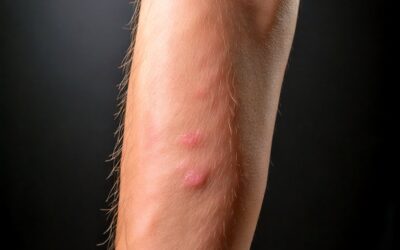Living in East Texas offers lush greenery, mild winters, and a vibrant outdoor lifestyle. However, the region’s warm, humid climate and abundant vegetation also make it a hotspot for allergies. If you or your family suffer from sneezing, itchy eyes, or other allergy symptoms year-round, you’re not alone. At Access Allergy, Asthma, and Immunology, we specialize in helping patients manage and overcome allergies unique to East Texas so you can enjoy life without constant discomfort.
Why Are Allergies So Common in East Texas?
East Texas’ climate and environment create ideal conditions for allergens to thrive. The combination of high humidity, dense vegetation, and extended pollen seasons means that many people experience allergy symptoms for most of the year. Here’s what contributes to allergy challenges in the region:
Pollen from Trees, Grasses, and Weeds
Unlike arid parts of the state, East Texas has a long growing season, meaning pollen from trees (oak, pine, cedar, pecan), grasses (Bermuda, ryegrass), and weeds (ragweed, pigweed) is present almost year-round. Pollen levels tend to spike in the spring and fall, leading to increased allergy symptoms.
Mold and Mildew
The region’s humidity encourages mold and mildew growth, both indoors and outdoors. Mold spores can trigger allergic reactions and are especially problematic after rain or in damp areas like bathrooms and basements.
Dust Mites and Pet Dander
Dust mites thrive in humid environments and are a common indoor allergen in East Texas. Pet dander from cats and dogs can also contribute to persistent allergy symptoms, especially in homes with carpeting and upholstered furniture.
Year-Round Allergens
While some regions experience allergies only during certain seasons, East Texas residents often deal with allergens year-round. Mold, dust mites, and pet dander persist indoors, while outdoor allergens fluctuate with the changing seasons.
Common Allergy Symptoms in East Texas
If you live in East Texas, you may experience:
- Sneezing, runny nose, or nasal congestion
- Itchy, watery, or red eyes
- Coughing, wheezing, or difficulty breathing (especially for asthma sufferers)
- Itchy skin, rashes, or worsening eczema
- Fatigue caused by chronic sinus congestion or poor sleep quality
If these symptoms interfere with your daily life, we can help identify your triggers and develop a personalized treatment plan.
How Access Allergy, Asthma, and Immunology Can Help
We understand the unique allergy challenges of living in Tyler and the surrounding area. Our goal is to provide effective, tailored solutions that help you breathe easier and feel better.
Comprehensive Allergy Testing
The first step in managing allergies is identifying what’s causing your symptoms. We offer advanced allergy testing to pinpoint your specific triggers, including:
- Pollen from local trees, grasses, and weeds
- Dust mites, mold spores, and pet dander
- Food allergies that may be complicating your symptoms
Our testing process is safe, precise, and designed to give you clear answers.
Customized Treatment Plans
Once we identify your allergens, we’ll create a personalized treatment plan that fits your lifestyle and needs. This may include:
- Medications: Antihistamines, nasal sprays, or asthma inhalers to control symptoms.
- Immunotherapy: Allergy shots or sublingual immunotherapy (tablets or drops) to desensitize your immune system over time and provide long-term relief.
- Lifestyle Modifications: Practical strategies to reduce allergen exposure in your home, such as using HEPA filters and avoiding outdoor activities during high-pollen periods.
Care Recommendations for Sinusitis and Nasal Polyps in East Texas
- Control Indoor Humidity – Use a dehumidifier to keep humidity levels between 30-50% to reduce mold and dust mites.
- Nasal Irrigation – Use saline nasal rinses to flush out allergens and keep nasal passages clear.
- Monitor Pollen Counts – Stay indoors during peak pollen times, especially in the morning and on windy days.
- Air Purifiers & Filters – Use HEPA filters in your home to minimize indoor allergens like mold, dust, and pet dander.
- Regular Cleaning – Wash bedding frequently and vacuum with a HEPA filter to reduce allergen buildup.
- Wear a Mask – On high-pollen days, wearing a mask outdoors can help limit allergen exposure.
Care Recommendations for Allergic Skin Conditions in East Texas
- Moisturize Regularly – Use fragrance-free, hypoallergenic moisturizers to prevent skin irritation from humidity and allergens.
- Stay Hydrated – Drink plenty of water to keep skin hydrated and reduce flare-ups of eczema and other skin conditions.
- Use Gentle Skincare Products – Avoid harsh soaps and opt for mild, fragrance-free cleansers.
- Protect from Heat and Sun Exposure – Wear sunscreen daily and lightweight protective clothing to minimize heat-related rashes and skin irritation.
- Limit Hot Showers – Use lukewarm water and keep showers brief to avoid drying out the skin.
- Reduce Indoor Allergens – Keep your home clean, use HEPA air purifiers, and regularly wash bedding to limit exposure to allergens that trigger skin reactions.
Why Choose Access Allergy, Asthma, and Immunology?
We know how frustrating it can be to live with persistent allergies. That’s why we offer compassionate, comprehensive care tailored to the specific challenges of East Texas. With our expertise, state-of-the-art testing, and personalized treatment plans, we’re here to help you take control of your allergies and improve your quality of life.
Take the First Step Today
If allergies are holding you back, don’t wait to find relief. Contact Access Allergy, Asthma, and Immunology today to schedule an appointment.
Let us help you breathe easier, enjoy the beauty of East Texas, and reclaim your comfort. Together, we’ll develop a plan to make allergies a thing of the past.




0 Comments